- Home
- Newt Gingrich
Days of Infamy Page 2
Days of Infamy Read online
Page 2
“Please ask Admiral Stark to see me at once. I expect our boys to fight back, starting now, today. If we lose our carriers but deal it back to them”—he hesitated only for the briefest instant—“back to those bastards, then that is a risk we must be willing to take.”
Aboard the Imperial Japanese Navy carrier Akagi
150 miles north of Oahu
December 7, 1941
18:00 hrs local time
“SO WHAT IS the final tally of our losses?” Admiral Yamamoto asked, looking at Commander Genda.
Genda looked down at his notepad.
“All six carriers of the fleet have filed their reports. We lost twenty-nine planes in the first two strikes and another thirty-five damaged, twenty of them requiring extensive repairs and half of those to be broken down for spare parts, then jettisoned. The third strike was far more costly. Of the seventy-seven planes engaged, twenty-seven were lost, another twenty-one damaged, of which seven have been listed as no longer combat effective and should be salvaged for parts. That is a total of at least eighty-six aircraft that are no longer combat effective. Our strike capability has therefore been reduced to a total of just under three hundred aircraft.”
Yamamoto, saying nothing, sipped his cup of tea, then sat back, lit another cigarette with his American Zippo lighter, a gift from long ago, and exhaled.
“Expected. Remember when we war-gamed this in the fall we anticipated upward of a hundred fifty aircraft lost just in the first two strikes. We are still far ahead of the ledger of what we deemed acceptable.”
He could see the glum faces, especially those of the leftover staff of Admiral Nagumo, whom he had replaced at the last minute. His third strike had more than doubled the total losses incurred so far, and they were not happy about it.
“And the report on the results of the third strike?”
“Photo recon planes are just returning now,” Genda announced. “Developed film will be delivered shortly, but debriefing of pilots indicates a near-fatal blow to their base. Tens of thousands of barrels of oil are burning. There is a report that a cruiser, perhaps a heavy cruiser, has grounded in their main channel. Their submarines still in port have either been destroyed or damaged. Extensive damage to repair shops, several large cranes destroyed, their headquarters totally destroyed, and most important their large three-hundred-meter drydock totally eliminated. It is estimated that a score or two score of combat-ready aircraft still exist on the island compared to over three hundred, twelve hours ago.”
As Genda spoke he nodded toward his closest friend, Lieutenant Commander Fuchida, still in his flight coveralls. They had been comrades for years, the perfect team, Genda the intellectual architect of the Navy’s air fleet, and Fuchida the practitioner, the one who took the ideas, practiced and perfected them, and turned them into reality. After he was tasked by Admiral Yamamoto at the start of the year, he had conceived the battle plan to strike Pearl Harbor. Fuchida was the one who developed the training routines for the strike force, drilled them relentlessly for months, to a razor-sharp perfection, and then led them into battle this morning.
Genda could not help but smile inwardly at a romantic analogy that flashed to mind. If Yamamoto was their shogun, then he was the old loyal daimyo, the advisor who suggested the plan… and it was Fuchida, the bravest of their samurai, who would then train the warriors and lead the charge.
In spite of Yamamoto’s orders to stand down and rest, Fuchida had been unable to sleep for long and begged to attend this briefing, which the admiral with fatherly goodwill had agreed to. Fuchida was most certainly the hero of the day. Having guided the first two strikes and then personally delivering the fatal blow to the drydock in the third strike, he had limped back to Akagi, his plane shot to ribbons, crash landed, and barely escaped with his life.
ADMIRAL Yamamoto nodded good-naturedly at the two sitting across from him. Actual commendations and decorations within the Imperial Navy were rare; it was just assumed that all men would do their utmost duty, without regard for self, so why offer medals and rewards? It was a policy that he personally wanted to change, for though it was a most cynical comment, Napoleon had once said that it is with such “baubles” that men are led. He might not be able to offer medals to these two heroes, but when he returned to Tokyo, he already had decided, he would personally present Genda and Fuchida to the Emperor for the praise they so well deserved.
Yamamoto silently contemplated the tip of his glowing cigarette, flicking the ashes, taking another deep drag.
“But their carriers are still out there.”
No one spoke.
Nagumo’s overly cautious staff had whispered that very thing throughout the long afternoon, expecting at any minute a counter-strike… but none had come.
“They are not north of the islands, of that I am now utterly certain. If they had been, they would have struck us this afternoon,” and he nodded toward the open porthole. Twilight was beginning to settle on the tropical sea, which had flattened out significantly throughout the day.
No, there would be no American strike now. It meant that his gambler’s hunch of earlier in the day had been right. The American carriers were somewhere south or west of the islands, out of range, but they were out there… and now he wanted to sink them, to make this victory complete.
He was still shaken by the diplomatic news that had been filtering in all day. Radio stations on the American West Coast had been monitored: bitter commentary that the attack had been unprovoked, without warning, a “Jap sneak attack.” That news had horrified him.
The Foreign Ministry had totally failed in their mission. When he had agreed to undertake the planning of this war, back early in the year, he had absolutely insisted, before the Emperor himself, that with his knowledge of Americans, their proper sense of diplomatic and military protocol must be followed. That a formal declaration of war must be delivered before the first bomb fell. Some thought him insane, loudly proclaiming that it was folly, that it would double, triple the losses, but he had always replied that the life of fifty, a hundred pilots, when placed in the balance of fighting an opponent who could not claim “a stab in the back,” as Americans put it, would be worth the price. If their sense of correct behavior had been observed, their anger, though significant, would not be aroused to fever pitch. Just as an opponent in cards, knowing he was beaten fairly in a poker match, would withdraw as a gentleman, but if ever he suspected a sleight of hand, a bitter rivalry and hatred that could burn for years would be the result. Yamamoto now faced just such an opponent. The Foreign Ministry had left him with a terrible task. He could not just achieve victory here, he must achieve a crushing victory. It would have been far easier if their carriers had indeed been in harbor, but they were not. The Americans would now turn to those three carriers, Enterprise, Lexington, and Saratoga, and most likely within the month, Yorktown and Hornet, as the means of trying to gain revenge.
No, he had to give an even more crippling blow, a far more crippling blow, and in so doing hammer the Americans into so resigned a mood that only negotiation made sense, in spite of what he expected would be their towering rage.
Perhaps, he thought shrewdly, that rage can be turned to our advantage. An opponent in cards, when losing, tends to become reckless in his desire to win back what he has already lost. I must play to that and must take the risks as well.
Yamamoto stubbed out his cigarette and leaned over, looking at the charts spread out on the table. He traced his finger around the waters south and west of Oahu.
“I am convinced that their three carriers, Enterprise, Lexington, and Saratoga, are somewhere out here,” and then he drew a vague outline across nearly a million square miles of ocean, the vast triangle from Oahu northwest to Midway, over 1,100 miles away, and then down to Wake, which stood sentinel over the approaches into the Japanese-held waters of the Marshalls.
“Tomorrow we shall hunt for them there.”
There was an uncomfortable stirring, and he looked over at Na
gumo’s chief of staff, whom he had retained, at least temporarily, for this mission.
“You object?”
“Sir, though I expressed concerns about your third strike on Pearl Harbor, I now bow to your wisdom. But this?”
“Go on.”
“As Commander Genda already pointed out, we are down to less than three hundred aircraft. Their three carriers, which we know carry more planes than our carriers, might be able to marshal three hundred in reply. They might very well be anticipating even now our moving toward them and be ready, aided by what aircraft survived on Oahu to provide scouting reports. We could be at a serious disadvantage tomorrow. They can surmise where we are; we might not be able to do the same.”
He paused.
“We don’t know where they are; they can guess where we are.”
“Not a single American scout plane followed us back from three strikes,” Fuchida said softly, voice hoarse from exhaustion, the hours of flying, and the smoke inhaled after crash landing. “On the island of Oahu they have, at best, a score of planes for scouting or any other purpose. We have annihilated their land-based aviation for the moment.
Admiral Yamamoto nodded for him to continue.
“I suspect they still do not know where we are, and their own radio broadcasts indicate panic on the island.”
“If we present them with a challenge they cannot refuse,” Genda interjected, “I would venture that by dawn their carriers might very well be in range of Oahu to provide support and to seek us out. In fact we might be able to force them into placing their carriers close to the island and revealing their position.”
“Go on,” Yamamoto said with the slightest trace of a smile, already anticipating what his trusted lieutenant was going to offer. The two of them were so often in synch with each other’s thinking.
“You mentioned an idea earlier today, sir,” Genda replied, his voice now edged with excitement as he pointed at the charts. “During the night, send our two fast battleships Hiei and Kirishima down along the east coast of the island. They can be in position before midnight. Bombard their bases on the east coast, swing around Diamond Head, and then attack their fortifications and then finally Pearl Harbor itself. The firing mission would take three or four hours at most, but render yet more damage and panic. It would seem to indicate, as well, a traditional move prior to an amphibious assault come dawn.
“I have read the reports on their Admiral Halsey. He is highly aggressive, bombastic, and pride alone will drive him forward into our net. He will launch in reply and thereby reveal his position not in a strike against our carriers but against the battleships as they withdraw from Oahu after bombarding Pearl Harbor. Once his position is revealed by that strike we then counterstrike, catching their carriers as they are still recovering their planes from the attempt on our battleships.”
He smiled.
“We hit them turning their planes around on deck and below in their hangar, planes that are being loaded with gas and bombs; if but one of our bombs strikes them at that moment,” he paused for effect, “that carrier is destroyed.”
They had run simulations and war games based on such a scenario. What would happen if a strike could be launched against an enemy carrier while its deck and hangar bay were fully loaded with aircraft, fueling up and arming? The calculation was always the same: utterly catastrophic. It had been, as well, the argument of the battleship admirals against deploying carriers into the front line of action—they were simply too vulnerable if caught by surprise, while a battleship could withstand relentless pounding and continue to fight.
Well, that would be put to the test come morning, he thought.
There was murmuring from several in the room. It was one thing to be battleship sailors and talk about the glory of a ship-to-ship action at sea, but to risk such precious assets in a shore bombardment, when an enemy fleet might be farther out to sea, boxing them in? To use battleships as bait? It was a very unsettling and unnerving concept. Only an airman could have proposed it.
Yamamoto smiled in reply. It was, of course, exactly what he had been thinking most of the afternoon. Such a bold and open challenge, a nighttime bombardment by two battleships, which could indeed inflict yet more punishing damage… such an act could not go unchallenged. The American carriers would have to reveal themselves. And to risk a battleship, even two, if by so doing he could bag the three American carriers… that was a risk well worth taking.
“To place two of His Majesty’s battleships at such risk?” Nagumo’s chief of staff replied, the shock evident in his voice.
Yamamoto looked over at him. The response, of course, was expected. So many in the navy were still emotionally linked to battleships. The ships were so big, so expensive and precious, that though admirals of all fleets talked about the moment of encounter, all actually shied from it, frightened of the risk even to one ship. The British and Germans had demonstrated that clearly at Jutland, when both at different stages of that battle back in 1916 threw away a chance for a stunning victory, out of a fear of potential loss.
It was not how Nelson, or most definitely for that matter, the legendary Togo, would view this moment. Nor how he himself would view it. At Tsushima, Togo had annihilated the entire Russian Imperial fleet by taking risks and being daring. Victory, not caution, was the goal of Togo, and it would be the goal of Yamamoto.
If disaster should unfold, if in fact all three American carriers did launch together and both battleships were lost, but in turn he could sink those three carriers and render yet more damage to the American bases on Oahu, the exchange would be worth it.
He stubbed out his cigarette.
“A task group then. Our two fastest battleships, escorted by our two lightest carriers, Soryu and Hiryu, which will remain farther out to sea in direct support of the battleships, are to attack the island throughout the night. The cruiser Tone will go as well, with her scout plane pilots trained in night observation and in marking targets with flares.”
No one spoke. They had repeatedly war-gamed night battles at sea, and the use of well-trained pilots, launched by catapults from two cruisers specifically designed to carry six seaplanes each, Tone and Chikuma. But never had it been actually tried for real, and in addition, against land targets off a hostile enemy coast. It would be a risky operation.
“The two escorting carriers will remain concealed farther out to sea, but ready to provide effective air cover for the battleships while the rest of our carriers will race to the west of the island during the night and be in position at dawn a hundred fifty miles to the northwest of the island, ready to react. If their carriers are to the south, Hiryu and Soryu will have the honor of the first strike. If to the west, our main task force will deliver the killing blow. When they move against our battleships it will reveal their positions first, as long as we evade any search planes from either their carriers or Oahu. If we can achieve that, we will sink all three without danger to ourselves. It will be a victory as significant as that we have already achieved.
“Regardless of outcome, the entire task force will then move to reunite by midday, farther to the west of Oahu.”
“And the ships still in Pearl Harbor?” Rear Admiral Kusaka, Nagumo’s chief of staff, asked. “They still pose a threat.”
“Try to raise contact with our submarines to move to block the channel,” Yamamoto replied disdainfully. “They have done precious little so far. Perhaps during the night and tomorrow morning they can prove their worth and tackle any ships that try and sortie.”
“Our oil supplies?” Kusaka asked.
Yamamoto looked over at his chief of staff. Rear Admiral Kusaka had originally been Admiral Nagumo’s man. Yamamoto had kept him on after replacing Nagumo and taking direct command of the attack on Pearl Harbor. There were times in these last few days he regretted that decision, wishing he had made a clean sweep of it, replacing these older men of caution with men of audacity like Genda. But on the other side of the issue, perhaps he did need a man like K
usaka at times. His concerns about oil still available were well justified. In one sense, after all, it was one of the reasons for this war in the first place, to be able to seize the Dutch oil fields in the East Indies. On a strategic level it was Japan’s greatest worry, and on this tactical level, of day-to-day operations, it was a key point of concern as well.
They had on board one day’s supply for high-speed battle maneuvers, three to four days at standard speed. Night refueling was a very risky operation. No. He had to move now. He would order the fleet oilers up to a rendezvous. Once topped off, his fleet would have enough fuel to make it to where additional oilers, civilian tankers pressed into service, waited to rendezvous in the Marshalls. The tankers with the fleet would then run to the Marshalls to take on fuel and join other tankers he had sent there for this very contingency. It could get tight, especially if enemy subs or surviving aircraft located the oilers, but he was always the gambler, and it seemed worth the risk to him even if the battleship traditionalists could not understand it.
He looked at his staff.
“Signal the battleships at once, and the carriers Soryu and Hiryu, with their appropriate escorts. Mission signal is clear and simple. Proceed to the east coast of Oahu, bombard their Kaneohe airbase, then Fort Bellows,” and as he spoke he traced the positions on the map, “but reserve most of their shells for positions along the south coast and then general area bombardment of Hickam and Pearl Harbor. If that does not bring out Halsey, I do not know what will.”
He scanned his staff with an icy gaze.
“To your duty, gentlemen. It will be a long night.”
Chapter Two
Kailua, east shore of Oahu
December 7, 1941
22:50 hrs local time

 1945
1945 Collusion
Collusion Trump's America
Trump's America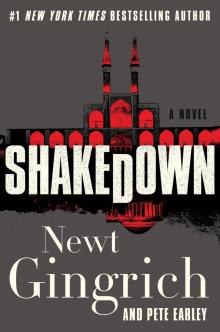 Shakedown
Shakedown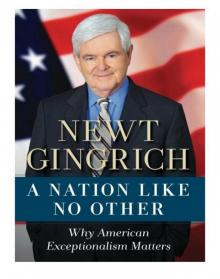 A Nation Like No Other
A Nation Like No Other To Try Men's Souls - George Washington 1
To Try Men's Souls - George Washington 1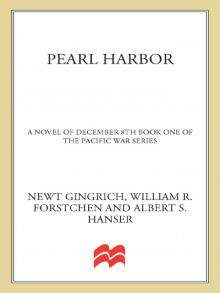 Pearl Harbor: A Novel of December 8th
Pearl Harbor: A Novel of December 8th Valley Forge: George Washington and the Crucible of Victory
Valley Forge: George Washington and the Crucible of Victory To Save America
To Save America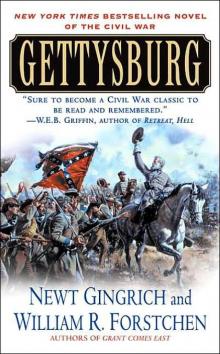 Grant Comes East cw-2
Grant Comes East cw-2 Victory at Yorktown: A Novel
Victory at Yorktown: A Novel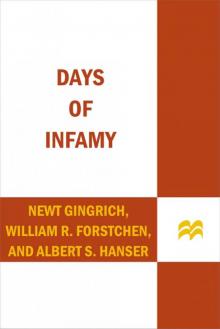 Days of Infamy
Days of Infamy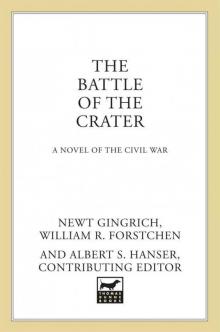 The Battle of the Crater: A Novel (George Washington Series)
The Battle of the Crater: A Novel (George Washington Series)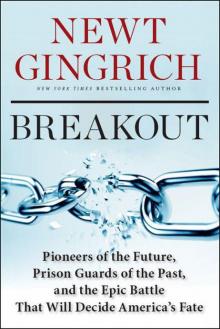 Breakout: Pioneers of the Future, Prison Guards of the Past, and the Epic Battle That Will Decide America's Fate
Breakout: Pioneers of the Future, Prison Guards of the Past, and the Epic Battle That Will Decide America's Fate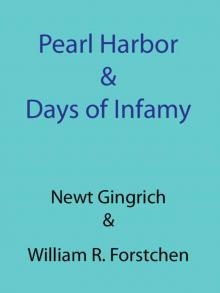 Pearl Harbour and Days of Infamy
Pearl Harbour and Days of Infamy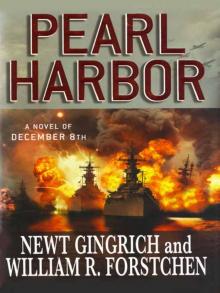 Pearl Harbour - A novel of December 8th
Pearl Harbour - A novel of December 8th Understanding Trump
Understanding Trump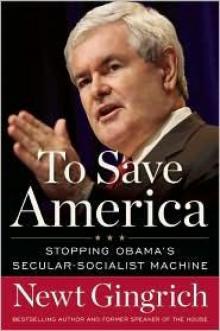 To Save America: Abolishing Obama's Socialist State and Restoring Our Unique American Way
To Save America: Abolishing Obama's Socialist State and Restoring Our Unique American Way